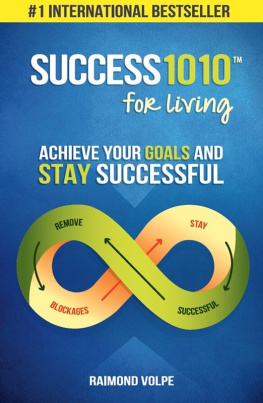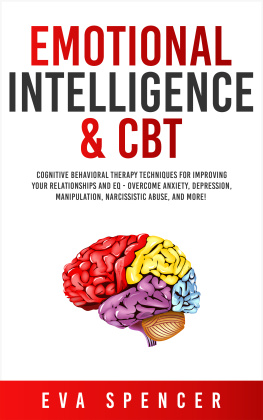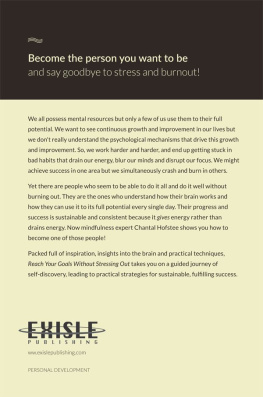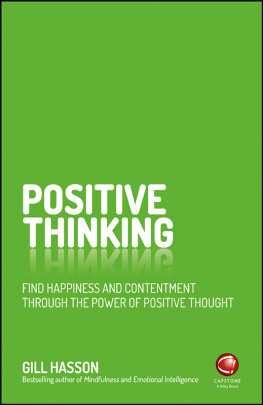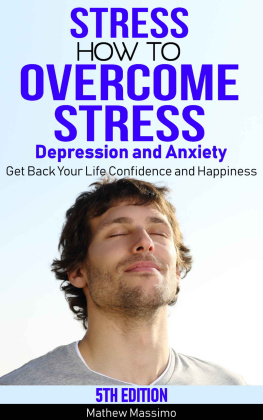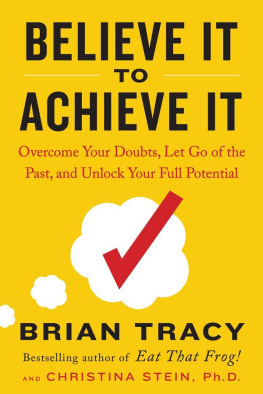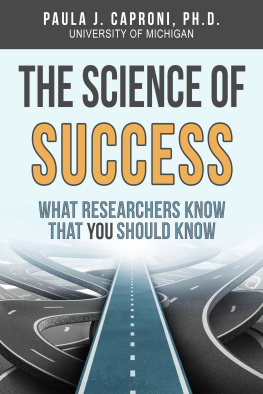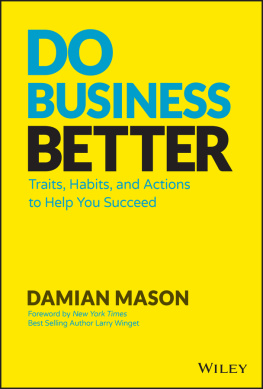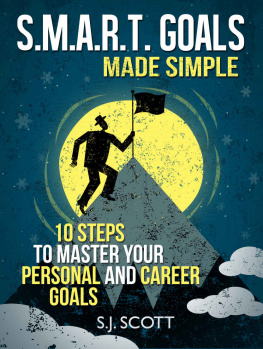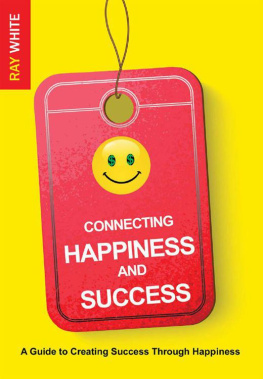Notes
1 Aaker, J. Rudd, M., and Mogilner, C., If Money Doesnt Make You Happy, Consider Time, Journal of Consumer Psychology , 2011, as sourced from LaPlante, Alice, If Money Doesnt Make You Happy, Consider Time: Forget Suze Orman. Time, not money, is your most precious resource. Spend it wisely. Stanford Graduate School of Business, Insights by Stanford Business, Marketing, Career and Success, Management, April 1, 2011, accessed 10 October 2015. See https://www.gsb.stanford.edu/insights/if-money-doesn%E2%80%99t-make-you-happy-consider-time.
2 Taylor, S. Elation: The Amazing Effect of Witnessing Acts of Kindness, Nov. 15, 2013, PsychologyToday.com , see https://www.psychologytoday.com/blog/out-the-darkness/201311/elation-the-amazing-effect-witnessing-acts-kindness-0.
3 Brooks, Arthur C., A Formula for Happiness, The New York Times , Dec. 14, 2013, See: http://www.nytimes.com/2013/12/15/opinion/sunday/a-formula-for-happiness.html?_r=0
4 Eriksons stages of psychosocial development, https://en.wikipedia.org/wiki/Erikson%27s_stages_of_psychosocial_development#Stages
McLeod, S.A. Attachment Theory, SimplyPsychology.org, 2009, http://www.simplypsychology.org/attachment.html (regarding the work of John Bowlby (1958), The nature of the childs ties to his mother, International Journal of Psychoanalysis , vol. 39).
6 See more at Dollard, J. and Miller, N.E. (1950), Personality and psychotherapy . New York: McGraw-Hill.
7 McLeod, op. cit .
8 AIPC/Australian Institute of Professional Counsellors, Extract, Trends and Statistics of the Contemporary Family, from the original article from Mental Health Social Support Specialty Supporting Challenged Families, Sep. 5, 2012, retrieved Sep. 10, 2015, see http://www.aipc.net.au/articles/trends-and-statistics-of-the-contemporary-family.
9 Australian Bureau of Statistics, Counts of Australian Businesses, including Entries and Exits, Jun 2010 to Jun 2014, 2 March 2015 Media Release The number of Australian businesses have increased, see http://www.abs.gov.au/ausstats/abs@.nsf/mediareleasesbytitle/950EC94DB899312ECA2573B00017B8F4?OpenDocument.
10 Contrasting and categorization of emotions, https://en.wikipedia.org/wiki/Contrasting_and_categorization_of_emotions
11 World Health Organization, Depression Fact Sheet No. 369, October 2015, see http://www.who.int/mediacentre/factsheets/fs369/en.
12 Mental Health Research Institute, see http://www.mhri.edu.au/depression.
13 Harvard Health Publications, Harvard Medical School, Exercise and Depression, June 9, 2009, see http://www.health.harvard.edu/mind-and-mood/exercise-and-depression-report-excerpt.
14 McLeod, S.A. Erik Erikson, SimplyPsychology.org, see http://www.simplypsychology.org/Erik-Erikson.html.
15 DiPirro, D. Make the 3-to-1 ratio of positivity work for you, PositivelyPresent.com, January 25, 2010, see http://www.positivelypresent.com/2010/01/what-is-positivity-.html.
16 Locus of Control, ChangingMinds.org [n.d.], see http://changingminds.org/explanations/preferences/locus_control.htm, accessed 20 Sept. 2015.
17 Kets de Vries, M.F.R. Are You a Victim of the Victim Syndrome?, Faculty and Research Working Paper, INSEAD, 2012, see http://www.insead.edu/facultyresearch/research/doc.cfm?did=50114.
18 Marks, L. I. Deconstructing Locus of Control: Implications for Practitioners. Journal of Counseling and Development, 1988, 76: 251260. doi: 10.1002/j.1556-6676.1998.tb02540.x. See also Torun and April, 2006; Minkoff et al ., 1973; Kobler and Scotland, 1964.
19 Lefcourt, H.M. Locus of Control: Current Trends in Theory and Research. NJ: Lawrence Erlbaum Associates. 1976.
20 Kurt A. April et al., Impact of Locus of Control Expectancy on Level of Well-Being, Review of European Studies (2012), vol. 4, no. 2, see http://dx.doi.org/10.5539/res.v4n2p124.
21 Perry, S.K. 5 Ways to Finish What You Start (and Why You Often Dont), https://www.psychologytoday.com/blog/creating-in-flow/20 1402/5-ways-finish-what-you-start-and-why-you-often-dont
22 More stressed than ever? Living in the 21st century is reportedly twice as stressful as living in the 1960s, Body and Soul, see http://www.bodyandsoul.com.au/sex+relationships/wellbeing/more+stressed+than+everr,7721.
23 Sincero, S.M. General Adaptation Syndrome, Explorable , see https://explorable.com/general-adaptation-syndrome.
Ibid .
Ibid .
26 Hatter, K. What Are the Effects of Inconsistency in the Home Environment on Kids, Demand Media, EveryDayLife.GlobalPost.com, see http://everydaylife.globalpost.com/effects-inconsistency-home-environment-kids-22885.html.
27 University of Maryland Medical Center, Stress, last reviewed January 30, 2013, see http://umm.edu/health/medical/reports/articles/stress.
28 Richter, R. 5 Questions: Dhabhar on the good and bad aspects of stress, Stanford Medicine News Center, Oct. 22, 2012, see http://med.stanford.edu/news/all-news/2012/10/5-questions-dhabhar-on-the-good-and-bad-aspects-of-stress.html.
29 University of Maryland Medical Center, op . cit.
30 The health benefits of strong relationships, Harvard Womens Health Watch, Harvard Health Publications, Harvard Medical School, Dec. 1, 2010, see http://www.health.harvard.edu/newsletter_article/the-health-benefits-of-strong-relationships.
31 Temma Ehrenfeld, Why Love Is So Scary and Complicated: Three criss-crossing forces add up to chemistry, PsychologyToday.com, Jan. 24, 2013, see www.psychologytoday.com/blog/open-gently/201301/why-love-is-so-scary-and-complicated-0.
32 Lisa Firestone, Ph.D., Fear of Intimacy: Understanding Why People Fear Intimacy, PsychAlive.org, Glendon Association, [n.d.], accessed Sep. 24, 2015, see http://www.psychalive.org/fear-of-intimacy.
33 Ibid.
34 Ibid.
35 Albert Mehrabian, Wikipedia, https://en.wikipedia.org/wiki/Albert_Mehrabian
36 Micaela Deitch, Dependence, Independence, Interdependence and the States in Between, 7 Habits, FranklinCovey News, Online Learning, Jun. 29, 2012, http://www.franklincovey.com/blog/guest-post-dependence-independence-interdependence-stages.html.
37 Lisa Firestone, Ph.D., Self-Sabotaging: Why We Get in Our Own Way, PsychAlive.org, Glendon Association, [n.d.], see http://www.psychalive.org/self-sabotaging.
38 Lisa Firestone, Ph.D., Self-Esteem vs. Narcissism, PsychAlive.org, Glendon Association, [n.d.], see http://www.psychalive.org/self-esteem-vs-narcissism, accessed 8 Oct 2015.
39 Rodolfo Mendoza-Denton, Ph.D., Why We Self-Sabotage Our Success: We self-handicap to protect our self-esteem in difficult tasks, PsychologyToday.com, Apr. 15, 2011, see https://www.psychologytoday.com/blog/are-we-born-racist/201104/why-we-self-sabotage-our-success.
40 MindTools.com. (2015) Overcoming Fear of Failure: Facing Fears and Moving Forward, see https://www.mindtools.com/pages/article/fear-of-failure.htm. Accessed Oct. 5, 2015.
41 Ibid.
42 Killingsworth, M.A and Gilbert, D.T., A Wandering Mind Is an Unhappy Mind, http://science.sciencemag.org/content/330/6006/932.full?sid= 3d27f229-6e05-4828-b560-1516e79f2a4d#ref-12
43 Zwilling M. 6 Ways that Lack of Focus Can Kill Your Business,
44 Daniel Goleman, Research Affirms Power of Positive Thinking, The New York Times , Feb. 7, 1987, see http://www.nytimes.com/1987/02/03/science/research-affirms-power-of-positive-thinking.html?pagewanted=all.
45 Kendra Cherry, The Big 5 Personality Traits, updated Jan. 10, 2016, About.com, see http://psychology.about.com/od/personalitydevelopment/a/bigfive.htm.
46 Sandra Mahar and Maddy Harford, Research on Human Learning Background Paper, Paper No. 1, Dept. Of Education and Training, Feb. 2005, which cites C. Rogers, Freedom to learn: a view of what education might become, CE Merrill, Columbus, 1969.

